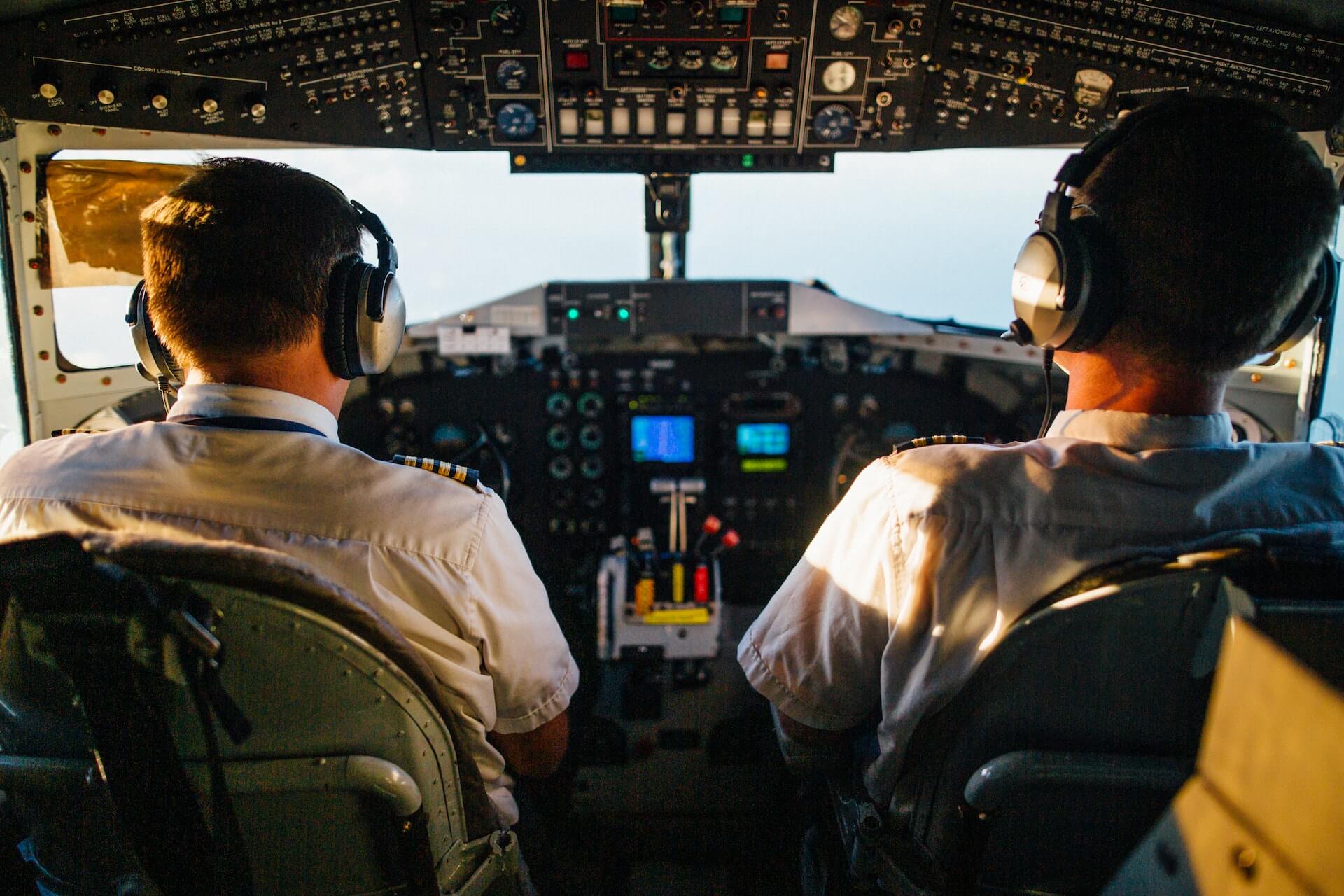If the skies are calling to you, you might want to know if you need a degree to become a pilot.
Unless you want to join the military, the answer is no!
The Federal Aviation Administration (FAA) doesn’t require you to have a degree. However, there are requirements you must meet to become licensed.
Do employers prefer potential pilots to have degrees? What do current pilots think about their degrees, and are there areas of study important for pilots to pursue?
Let’s discuss the sentiment around pilot degrees, and whether they’re worth the cost of education.
Do Pilots Need Degrees?
The short answer is no, they don’t. Pilots must, however, meet certain standards laid out by the FAA.
Can a degree help you become a pilot faster? Yes, but it’s up to you to decide whether this reduction in time is worth the cost of a degree.
Before deciding whether you should obtain a degree, consider why you need one. Let’s examine what you need to become a pilot, as per the FAA regulations.
Requirements Pilots Must Meet
Let’s examine the requirements for the different qualifications pilots can obtain.
Age Requirements
Generally, you must be:
- 16 years old to fly a plane on your own
- 17 years old to acquire a private pilots license
- 18 years old to operate aircraft commercially and start earning a salary
- 23 years old to get an airline transport pilot license (ATP)
Practical Training Requirements
You cannot start flying without the necessary, practical training. This will be foundational to your studies and career.
- You’ll have to pass all tests, including written exams and FAA check rides, to get certified as a pilot and start flying solo.
- You must meet the requirements for logged flying hours, which will differ depending on the pilot license you’re pursuing.
- You’ll require 40 flight hours to get a private pilot license (PPL) and 250 hours for a commercial pilot license (CPL).
To fly passengers from one destination to another, you’ll need 1,500 flight hours to get the additional airline transport license required.
A degree, or training from the military, can significantly reduce these hours. However, a degree will take years to complete and can be expensive. It’s really up to you to decide whether this trade-off is worthwhile.
Do Employers Want Job Applicants To Have College Degrees?
There are three main categories of flying: private, commercial, and military. For the first two, a degree is not required. However, you need a degree to become a military pilot. It’s one of the military’s basic requirements. If you’re not aiming for the military, a degree is not required to join any flight school or academy. A degree is also not a requirement for most employers. If you want to work for a major airline, a degree could be handy. This is because a degree can make you distinct from other applicants.
But, at the end of the day, this quote from a pilot forum sums it up nicely:
“If you want to be a pilot, you need to be in the sky, not in the classroom.”
Nothing equates to experience. In the field, you might need to work your way up to your dream employer. A degree is not needed and is a costly undertaking. If you can’t afford this option, your career can still be successful.
Are Certain Degree Levels More Desired Than Others?
So, you’re looking to study and train to become a pilot. Are certain degree levels more desirable than others? Should you study towards a master’s degree, or would a bachelor’s or associate’s be enough?
There isn’t a real preference for a certain level of education, and any degree will do the job of setting you apart.
A higher-level degree might make you stand out, but it is unnecessary. Understanding the concepts you need to become a pilot is much more useful than a degree.
Which College Degrees Do Pilots And Employers Find Useful?
If you aspire to join the military, you can pursue a degree in aviation, particularly aerospace engineering, although it’s not compulsory.
General bachelor’s degrees are also acceptable. The most preferred ones are physics, math, chemistry, and computer science.
You could study towards a Bachelor of Science in Professional Flight, a degree in professional flight management, or flight operations.
Are there certain areas of study important for pilots to pursue?
Even if you don’t want to work in the military, you might want to study as well as train to be a pilot.
In this case, consider a degree such as meteorology or aviation technology. These will give you more knowledge of your surroundings and equipment.
In flying, math is often used. You’ll find an understanding of algebra and trigonometry useful. Science degrees tend to have foundations in maths and physics. However, a high school education will also provide this foundation.
A science background can help you to more easily understand the physics of flying, as well as weather and systems operations.
Let’s discuss whether pilots think their degrees were worth obtaining.
Do Current Pilots Think Their Degrees Were Worth Obtaining?
As we mentioned, you can significantly reduce your minimum logged flying hours if you have a degree or military standing. A degree will give you a competitive advantage in the job market. It can increase your chances of joining large corporations and major airlines. You’ll also have the opportunity to advance your career into other sectors of the aviation industry (given that you study a major in the field of aviation).
Many pilots do not believe that degrees are worth the cost of education.
A flight academy will give you the experience and knowledge needed to be an excellent pilot. Experience in flying will also get you noticed as a candidate for your dream job!
One reason you might want to consider getting a degree is so that you can have a fallback if your pilot career is unable to continue. If you experience medical difficulties that prevent you from flying, having a degree means that you can get a non-pilot job.
Whether or not you should study is entirely up to you. If you do want to, note that you can study while training to be a pilot.
Final Thoughts
So, do you need a degree to become a pilot? No, unless you intend on joining the military!
The general sentiment around pilot degrees is that they aren’t worth the cost. However, if you are medically unable to fly, then a degree is a good fallback option. You can use this qualification to get work that doesn’t require you to be in the sky.
If you want to study something in the field of aviation, as well as train to be a pilot, why not? It can reduce your required flight hours for a pilot license, and potentially make you more attractive to employers. A degree can be costly, and it is not needed to be a pilot. So, if you can’t afford to study (or simply don’t want to), your dreams are still within reach!
After completing her degree in Conservation Biology, Righa took the freelance route to become a content writer. She now works at a content marketing firm and spends most of her free time gardening and bird-watching.

